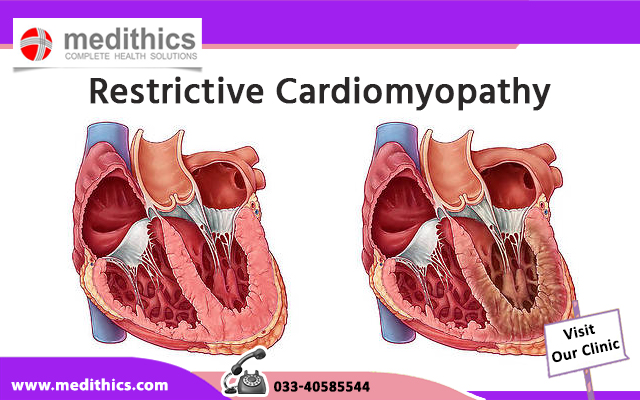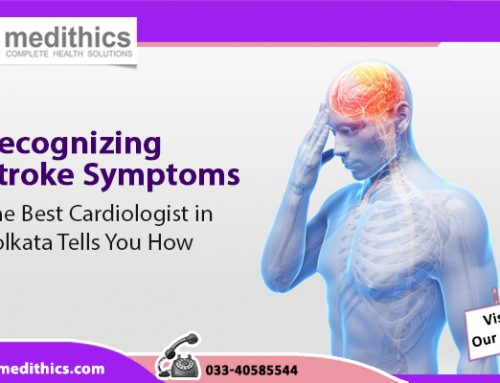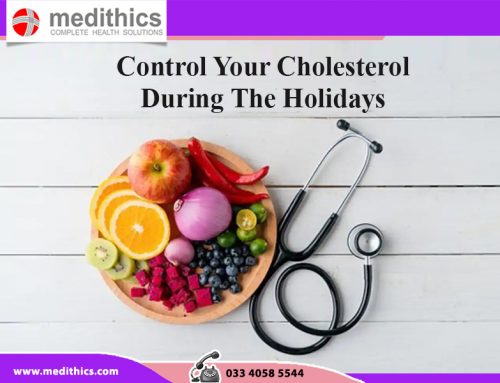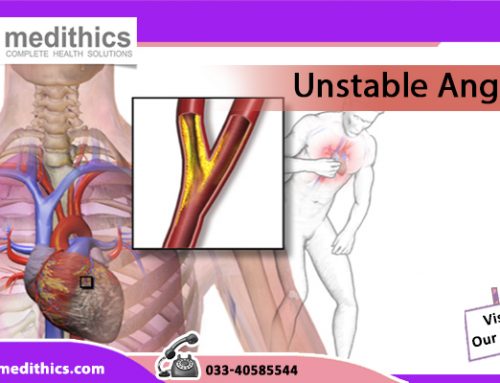Sometimes the walls of the heart’s lower chambers (ventricles) become so much rigid that they are unable to expand even after filled with blood. This condition is restrictive cardiomyopathy. The ventricles cannot receive enough blood, although they have normal pumping ability. The heart ultimately can’t pump properly and this leads to heart failure. The timely treatment by a heart doctor in Kolkata can reduce complications.
Symptoms
As the condition of the heart gets worse, the following symptoms may arise:
- Fatigue
- Shortness of breath
- Swelling of the legs and feet
- Gaining weight
- Bloating
- Palpitations
- Nausea
- Fainting
- Poor appetite
- Pain in the chest
Causes
Restrictive cardiomyopathy often runs in families and can be genetic. Some other causes are:
- Amyloidosis (build-up of proteins in the heart muscle)
- A build-up of scar tissue in the heart
- Radiation therapy
- Chemotherapy
- Hemochromatosis (too much iron in the heart)
Diagnosis
A cardiology doctor in Kolkata will properly examine your medical history and ask whether any of your family members had heart disease or not. A physical exam will also help him/her to check the symptoms. You may have to undergo the following diagnostic tests:
Electrocardiogram (ECG): This test helps the doctor to check the conduction of electrical impulses through your heart.
MRI (magnetic resonance imaging) scan and echocardiogram: The doctor can know your heart’s structure through these tests. He/she can also check your heart’s functionality and the blood flow through the heart.
Cardiac catheterization: The doctor inserts a catheter (thin plastic tube) into the heart through the blood vessels. Some tests like measuring the pressure within the heart’s chambers and using x-rays or ultrasound to know the heart’s structure and function are possible in this procedure.
Myocardial biopsy: To identify the cause of restrictive cardiomyopathy, the doctor sometimes carries out this test. It involves surgically removing a tissue sample from your heart and examining it under a microscope.
Treatment
The main focus of the best cardiologist in Kolkata during your treatment is to reduce and control the symptoms. Medications and lifestyle changes are the different treatment options.
Lifestyle Changes
Diet: The amount of sodium intake from your food becomes important after you start having symptoms like fatigue or shortness of breath. Try to obey the doctor’s instructions regarding your diet.
Exercise: You should ask your doctor about your exercise routine. As people with restrictive cardiomyopathy have difficulty in breathing and fatigue, the doctor will advise you to:
- Exercise at that time of the day when your energy is high
- Start slowly and then increase your pace
Medications
You may get better by taking ACE inhibitors and beta-blockers. The doctor will prescribe other medicines like diuretics, aldosterone inhibitors and digoxin if necessary. He/she may advise you to take certain medicines if you have an arrhythmia. These will help to reduce the frequency of arrhythmia or control your heart rate.
Surgery
A heart transplant may be necessary if the condition is severe.





